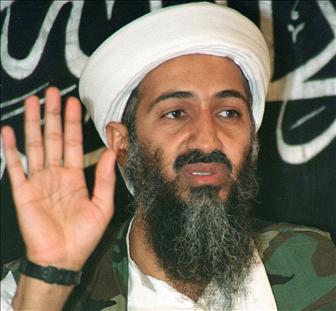 International law exists to promote understanding among countries and provide checks and balances to maintain peace and harmony.
International law exists to promote understanding among countries and provide checks and balances to maintain peace and harmony.
However, activities of ‘non-states’ such as terrorist groups, money-launderers and drug dealers constantly challenge the safety and security of territories and people.
Skeptics question the effectiveness of international laws in counter-terrorism.
The death of Al Qaeda leader Osama bin Laden (at the hands of the US forces in Abbottabad in Pakistan on May 2, 2011) sparked a serious debate on self-defense as stipulated by the Article 51 of the United Nations Charter to eliminate terrorism.
The UN General Assembly adopted a Resolution at its session held on September 28, 2001, which led to the establishment of the ‘Counter-Terrorism Committee’ in September 2006 under the initiative of then Secretary General Kofi Anan.
Legitimacy of debate
The US was entitled to self-defence when terrorists attacked the World Trade Centre in New York and the Pentagon in Washington on September 11, 2001, resulting in the death of thousands of people and destruction of property.
The Bush administration went after the Taliban in Afghanistan, which was allegedly sheltering bin Laden.
Its initiatives were justified before the international community and thereafter the UN supported the war against terrorism.
Acting under Chapter 7, the UN Security Council adopted a Resolution prohibiting countries from “providing any form of support, active or passive,’ to terrorists or their organisations.
“All States shall deny safer haven to those who finance, plan, support, or commit terrorist acts,” the Resolution said.
But the UN failed to define the ‘type of force’ that countries can use to combat terrorism either in their land or elsewhere.
Asymmetric warfare
India’s Permanent Representative Hardeep Singh Puri is the Chairperson of the Counter-Terrorism Committee this year.
The main challenge of the Committee is to prevent violation of human rights while combating terrorism. Although counter-terrorism and human rights are not mutually opposed to each other, their practice is often questioned.
Terrorism is a form of asymmetric warfare, and is more common when direct conventional warfare is not in use or becomes ineffective.
Demographic, socio-economic and political factors fuel terrorism.
Poverty, unemployment, disenfranchisement, ethnic, religious and territorial conflicts are responsible factors.
New Convention
While the UN move emanated from policies of governments and evolution of international law, its member states are keen on an additional international treaty or a more comprehensive Convention on terrorism.
According to sources, the proposed Convention will supplant the existing laws and framework of international anti-terrorism strategy.
It should consider criminalisation of terrorist offenses and implement global strategies for effective prosecution or extradition of the perpetrators of terrorist acts.
The backdoor talks are centered on cooperation, free exchange of information and frank discussion of prevention, investigation and prosecution of terrorists.
Insurgency and Terrorism
Terrorism, as defined vaguely in international law, has been used as an instrument to fight insurgency by countries around the world.
Although every country has the right to protect its borders and safety of its people, governments cannot and should not use such a right to harm people in general.
A three-member expert panel appointed by UN Secretary General Ban Ki Moon said that the Sri Lankan Government had breached the tenets of international law in its fight against insurgent Tamils who are demanding a separate State, killing thousands of innocent people.
However, the International Criminal Court (ICC), which came into being in July 2012, does not have provisions for terrorism.
This legal loophole should be plugged, if UN member-states are to take effective steps to combat terrorism.
The US decision not to join the ICC has political considerations fearing that overzealous prosecution may unfairly target the US citizens. However, this is likely to occur outside the ICC.
 Lockerbie case
Lockerbie case
About 980 passengers and crew were killed when Pan Am Flight 103 was blown up in Lockerbie (Scotland) on December 21, 1988.
Libyan nationals Abdelbaset Ali Mohammed Al Megrahi and Lameen Khalifa Fhima were held responsible for the bomb attack. Libya, which refused to follow its international obligations, faced economic and other sanctions.
The two were tried in Hague under the Scottish Law. Meghrahi was declared guilty of murder, while Fhima was acquitted and allowed to return home.
The International Criminal Law, which did not have provisions for terrorism, proved inadequate in this case.
The death of bin Laden did not end the fight against terrorists and terrorism.
Military strategists and counter-terrorism experts do not agree on the use of international law in fighting terrorism.
Balaji Chandramohan is our Correspondent based in New Delhi, India.
Photo : The death of Osama bin Laden sparked widespread debate






